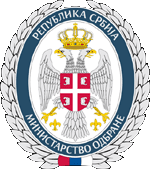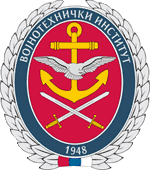|
REPUBLIC OF SERBIA MINISTRY OF DEFENCE
MINISTRY OF DEFENCE Material Resources Sector Defensive Technologies Department
|
Code Synchronization for Direct Sequence-Code Division Multiple Access
Aisha Sir Elkhatem Ali Department of Aeronautical Engineering, Sudan University of Science and Technology, SUST, Khartoum, Republic of Sudan, aishhaa.sir@gmail.com Moutaman Mirghani Daffalla Institute of Space Research and Aerospace, ISRA, National Center for Research, NCR, Khartoum, Republic of Sudan, mtnmir@gmail.com
Abstract: In direct sequence code division multiple access communication systems, a primary function of the receiver is to despread and decode the received signal using the same code applied at the transmitter. That is accomplished by locally generating a replica of the orthogonal code, which should be synchronised to the code that is superimposed on the received waveform. Generally, the synchronization process is accomplished in two steps or phases; code acquisition, which is a coarse alignment process bringing the two sequences within one time-chip interval, and code tracking, which is a fine tuning and synchronisation-maintaining process. This paper investigates code tracking in direct sequence spread spectrum systems under conditions of different signal-to-noise ratios, significant signal delay and phase offset. There are several methods used for tracking codes, such as early late gate, Gardner and Muller and Muller. Each of those methods has advantages and disadvantages, regarding its ability of handling signals at low signal-to-noise ratio, delay, phase and carrier frequency offsets. Computer simulations have been done to compare those tracking methods in terms of the bit error rate, average delay time to code tracking, for different values of the receivedsignal-to-noise ratio. Keywords: direct sequence; synchonization; code acquisition; code tracking; binary phase shift keying.
|
|||||
|
||||||

